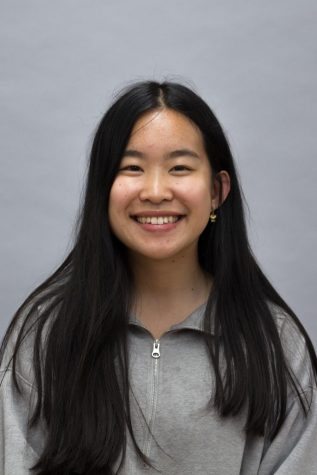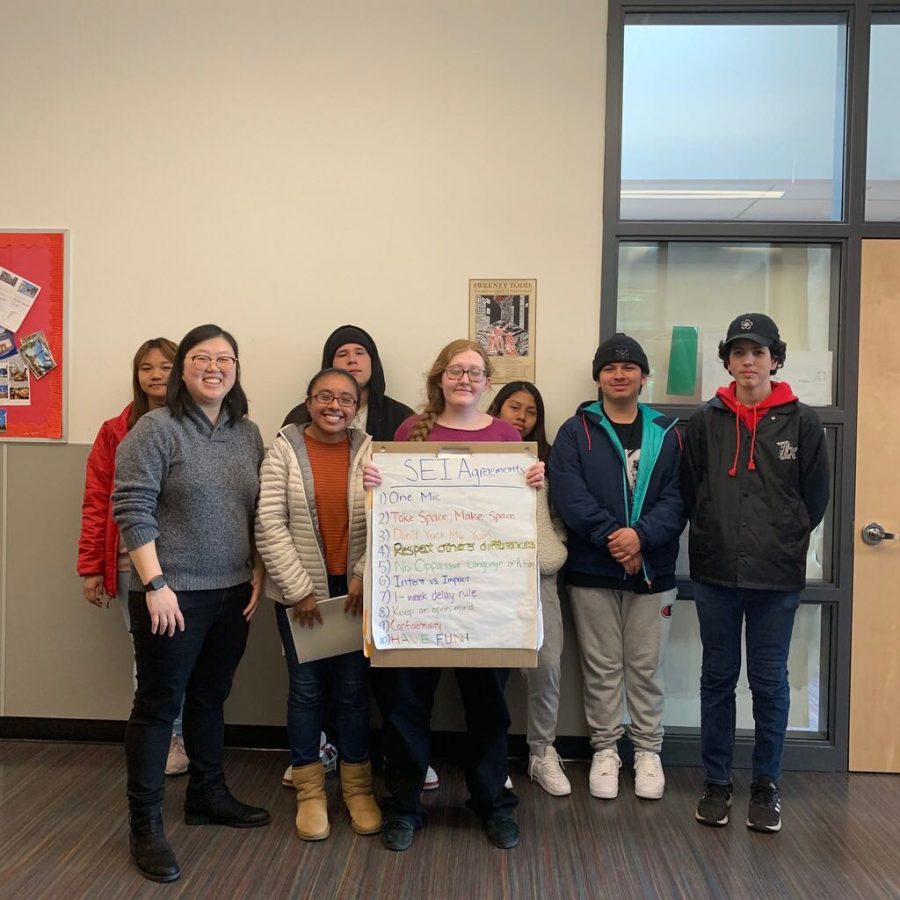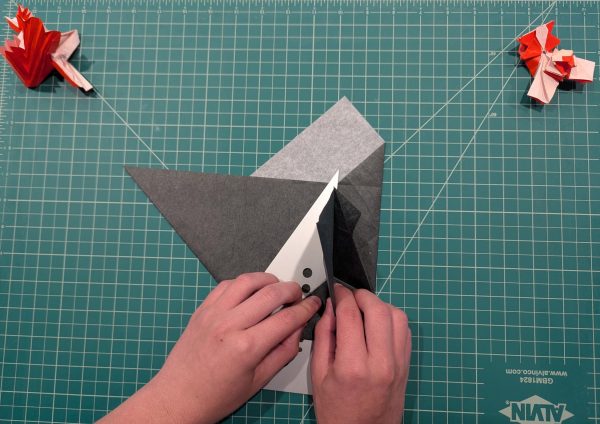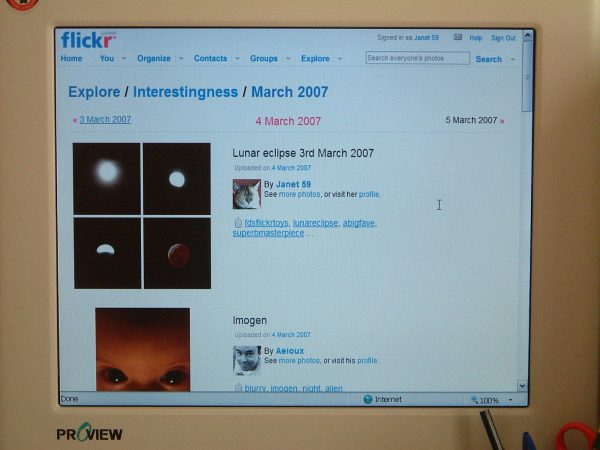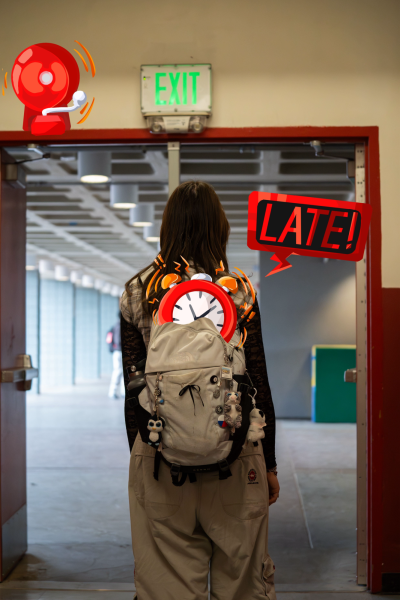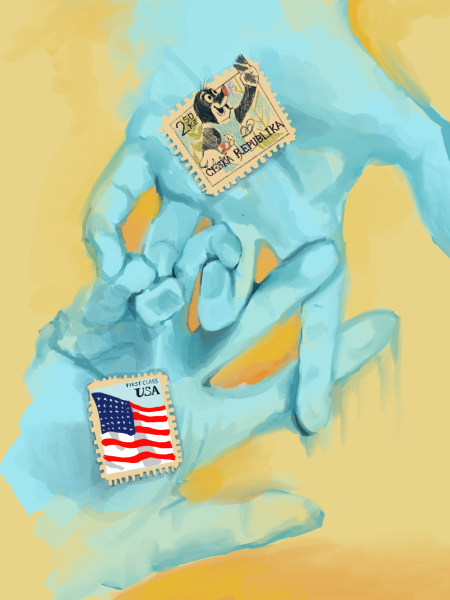Social Emotional Intelligence class fights to keep class alive
Every day during block seven, 13 students meet in room W109 for Social Emotional Intelligence (SEI) class. This isn’t a conventional class with copious note-taking, lectures and group work. Instead, after their daily meditation exercise, these students participate in community-building activities and discussions surrounding conflict resolution and self-care.
But recently, there’s been a new activity in the class aimed at keeping it alive. As the class was under-enrolled this year with only 13 students, the Lowell administration has decided to discontinue it. SEI students are trying to show the school administration why the class is essential to the mental well-being of Lowell students and bring the class back.
SEI is a new elective course that was implemented at the beginning of the 2018–2019 school year. According to Japanese and SEI teacher Sarah Wong, the class “combines meditation as a tool to support student growth and learning through leadership, community building and reflection.” The curriculum for the course was created by Wong and former assistant principal Margaret Peterson, along with support from the Center for Wellness and Achievement in Education (CWAE), a San Francisco-based non-profit organization that brings meditation to schools within the Bay Area.
According to Wong, SEI is a class where students can relax and filter out the anxiety they experience. “Meditation is a tool to help you get to that place of putting down a lot of those toxic thoughts that we carry with us throughout the day,” Wong said. She compares stress to “carrying a heavy backpack.” She believes that meditation is a “chance for you to take off the backpack, pull out the stuff that you don’t need and then repack it with the stuff you do need.”
In addition to class activities, SEI also offers day-long retreats twice a semester for students to deepen their meditation practice and de-stress before finals. These retreats serve as an opportunity for students to focus on taking care of themselves. Wong believes that in order for a student to be a “successful advocate for [themselves] and others, to be an agent for change and to be a strong leader, you have to be able to do that self-care reflection piece.”
However, instead of the usual discussions and community building during class, students immediately split up into three groups: marketing, information gathering and testimonial. The marketing group is responsible for posting updated SEI announcements on social media, the information gathering group sends out surveys to gauge student interest in SEI and the testimonial group receives letters from students stating why they believe SEI is an important class.
Sophomore Sabiha Rahman has been in SEI for a little over seven months, and considers it a “life-changing” experience. “I’ve learned skills such as meditation, managing my time better, just taking care of myself and just putting more thought into if I’m doing okay or if I need something,” Rahman said.
SEI has also been transformational for juniors May Mon and Harriette Alexis Chesler. Prior to joining SEI, Mon was in a toxic relationship with a friend who would force her to do things she didn’t want to. “I didn’t know how to say, ‘Can you please stop,’” Mon recalled. “I didn’t set up those boundaries nor enforce [them], so a lot of people got away with the stuff they did to me.” Through SEI, Mon has learned how to develop healthier relationships with people around her.
One of the ways Mon has learned to set boundaries has been through community-building activities. “I was really introverted before,” she said, “and being in SEI, being in a community [where] we see each other like family, it made me open up to them. We’re always supporting [each other] and they support me so we’re just like a big family.”
Chesler shared that SEI allowed her to be more comfortable with speaking up in class. “I noticed that this year I’ve been answering a lot more questions in class,” Chesler said. “I think that [SEI] has helped me come out of my shell because I’ve been in a group where not a lot of us talk, [so] we can sort of sympathize with each other and you’re in a place where everybody can understand you.”
All three students expressed great enthusiasm in taking the class again next year. “We heard from the principal that [the class] was getting cut and it’s a shame because it wasn’t given a fair chance,” Chesler said. “It was new, so nobody knew about it, and the word of mouth didn’t get around.”
SEI students are currently focused on recruiting more students at Lowell to sign their petition. They hope to encourage more students to show interest in signing up for the class and show the administration the impact of SEI on individuals throughout the Lowell community.
Although only 13 students signed up for the class this year, Wong believes SEI should continue because of its important impact on each student’s mental health. “We needed to work out some of the kinks, and a lot of it was we were still trying to find the footing of what it was going to be here at Lowell,” Wong said. “We’re finding that the role it’s taking at Lowell is providing an opportunity for students to have a combination of community, stress-release [and] a chance to develop themselves as leaders [and] as mentors.”
As of this semester, SEI is no longer offered on course selection. If you are interested in taking the class next semester or want to support SEI’s existence at Lowell, reach out to Wong or SEI students to learn how you can help.
